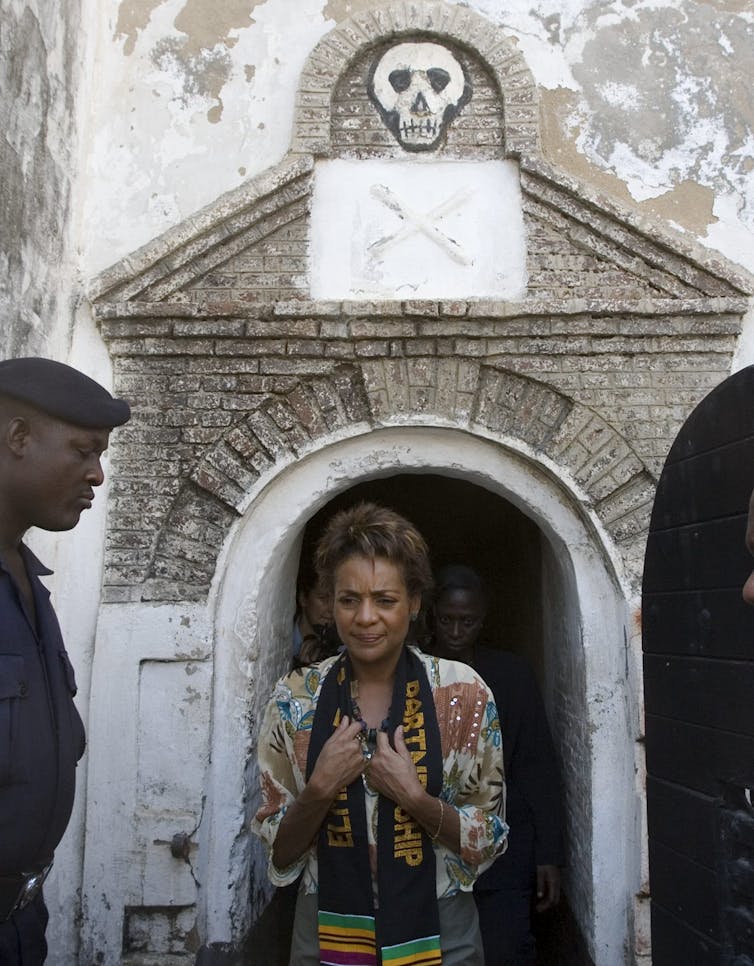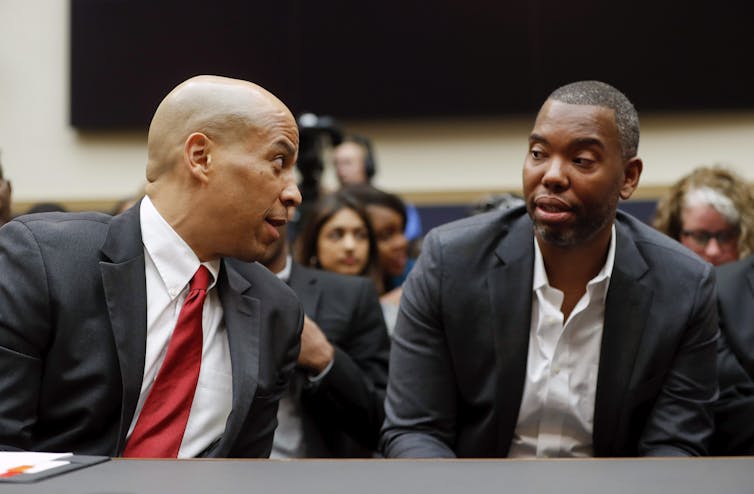Reparations for slavery and genocide should be used to address health inequities: U of T expert

Health justice funds could be used to support Black and Indigenous health initiatives and provide mental and physical health services to deal with the impact of trans-generational trauma (photo by Shutterstock)
Published: December 6, 2019
As soon as I entered , I felt haunted by over 400 years of brutality and the enslavement and genocide of millions of African and Indigenous Peoples. That violence still today.
The literal branding of Black people through mostly European by the Portuguese, British, French, Swedish, Dutch and Danish among others, haunted me in those dungeons. Colonialists .
The , the “year of return,” encourages Africans living in the diaspora to travel back to Ghana (formerly known as the Gold Coast) to embrace their African heritage and ancestry.
As a descendant of enslaved Africans via the Caribbean, living in colonial Canada (Turtle island), and a human rights health scholar, my trip to Ghana this summer during the “” was significant.
We are often asked to forget or minimize our enslavement histories through . But the smells of blood, sweat, terror and bones haunted me as I explored the impact of transgenerational trauma on myself and communities. These are the .

Presently, in the United States, for the descendants of enslaved men and women. The proposal to research reparations for African descendants, , has been presented to Congress.
In Canada, health justice reparations would support the implementation of the Truth and Reconciliation Committee’s Calls to Action and other Indigenous redress initiatives. For instance, calls upon the federal government to provide sustainable funding for existing and new Indigenous healing centres to address the physical, mental, emotional and spiritual harms caused by residential schools, and to ensure that the funding of healing centres in Nunavut and the Northwest Territories is a priority.
Reparations and justice
Health justice reparation is a call for returns to past and present-day countries that benefited from the exploitation of African and Indigenous Peoples and our resources. Health justice reparations are for Africans who were forcefully taken away and for those who stayed on the continent, both living through the anguish of family separation, grief and loss.
Health justice reparations need to be discussed in local, national and transnational contexts, and among non-governmental, private and governmental organizations.
Reparations have been discussed by African descendants in our communities since at least the in Britain.
Some scholars wrote about reparations starting in 1949 after the Second World War as the International Court of Justice heard the case “.” Survivors of the Holocaust through funds given to Israel and the World Jewish Congress shortly after.
Although there have been , official redress for slavery and its associated atrocities before the Second World War for predominantly African populations have not been significantly considered.
Human rights compensations
Health justice funds could be used to support Black health initiatives and provide mental and physical health services to deal with the impact of transgenerational trauma. Health justice reparations could be used to educate the public and historicize the voices of African and Indigenous Peoples experiencing health inequity (violence).

Health justice reparations could also be used to support Indigenous Peoples living in the Americas who have suffered horrendous genocide and deal with continued health struggles because of it.
Reparations should be looked at globally to address state-sanctioned violence and trauma against our communities transnationally.
African and Indigenous Peoples living in , the , , , , and , including , are demanding redress for continued harm, loss and violence experienced.
Health justice reparations include compensation and amends for mental, emotional, physical, social, cultural, spiritual and financial harms. The impact of cultural genocide by forcing the enslaved to speak the languages of the colonizer and to be re-named by those colonizers needs to be addressed.
Transnational Indigenous languages need to be taught everywhere.
Collect more data
Collecting race and intersectional-based statistics to in Canada and globally. The often missing data, .
Transgenerational health trauma is directly connected to present-day health inequities and health disparities. Addressing health disparities in Black and Indigenous communities must include ways to deal with ongoing transgenerational trauma as a direct result of colonial violence.
Health justice reparation requires recognition of the impact of violence on long-term health. Historical and contemporary anti-Black racist policies and practices need to be addressed with apologies and new policy implementation.
Structural violence inflicted on Black and Indigenous Peoples’ lives such as children’s aid organizations, prison systems, , schools and public housing needs to be addressed for its impact on health.
Addressing health violence must include transnational Indigenous knowledge and
The western medical model – linked to and other forms of discrimination – must be challenged. This model has lead to cultural biases and stigma-based scientific inquiry that has .
Health justice reparations must include debt forgiveness to countries and community members of African ancestry for transgenerational trauma. can put back money into struggling health-care systems and communities globally that were forced to cut social service spending.
Our conversations need not be about the impossibility of reparations. Health justice reparations is about life and death, it is about our past, present and future.
is an assistant professor, teaching stream, at the 's Dalla Lana School of Public Health.
This article is republished from under a Creative Commons license. Read the .



